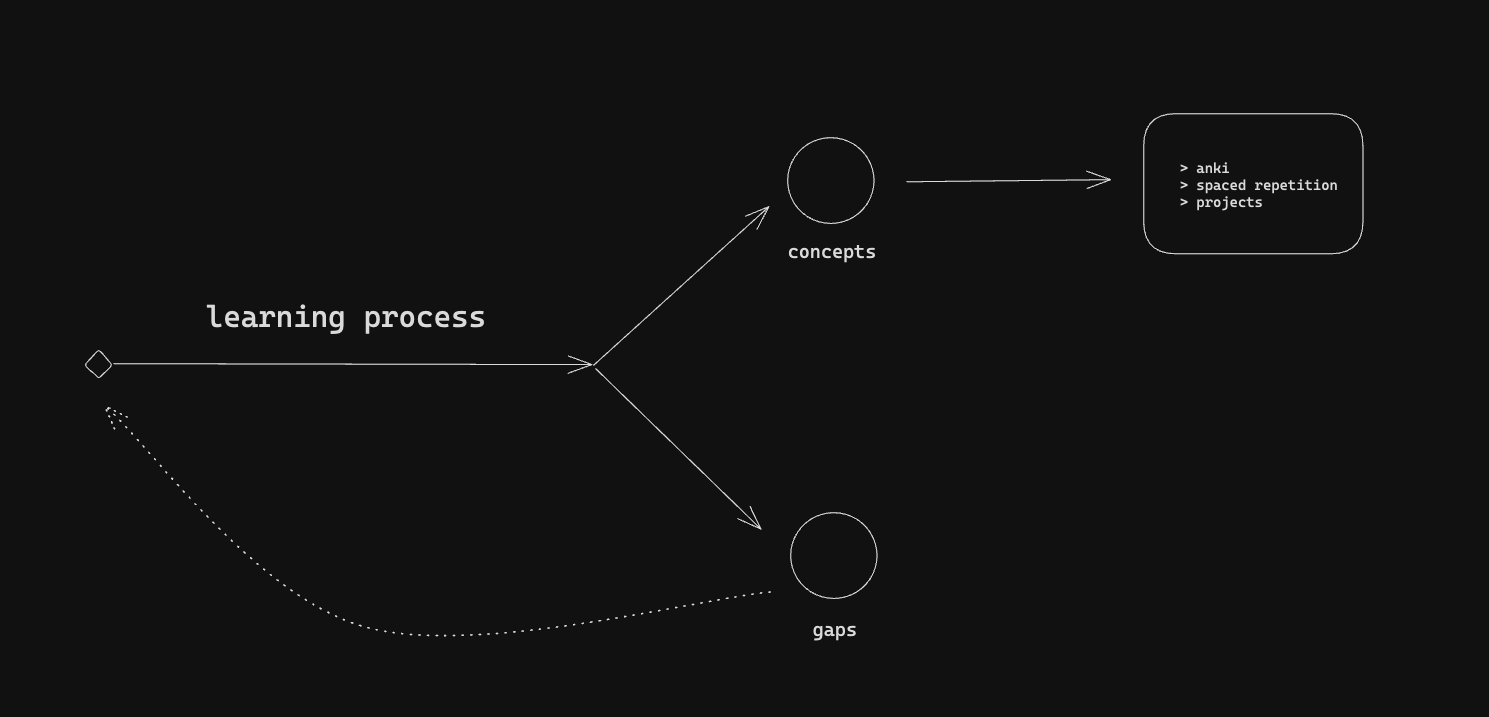Learning & The Power of the First Step
Whenever I'm learning something new, I'm inclined to build the perfect path to learn this topic, let's call it the perfect learning path. The more I tried to build this path, the more distant I felt from actually learning it. I wonder if people feel the same way, especially when we are learning something complex, that requires a lot of time, a lot of effort, and patience.
The current topic I'm studying is Machine Learning and its application in healthcare and life sciences. This is a very broad and complex studying topic. It definitely requires time and effort.
At the beginning of this journey, I started with building this perfect learning path, where I added a whole lot of resources there, organizing by fields and subfields to help me plan this study.
Don't get me wrong, planning is essential. It was great to write down what could be the right path for me to achieve this goal of learning machine learning and be able to apply it in specific fields. Planning helped me to get a broader view of the field and the big picture, and see if I'm on the right track.
But there's a thin line between planning to help my studies and planning as a form of procrastination. At some point, we keep focused on the meta, when it's not worth it anymore. You just see diminishing returns.
So here is the first lesson: don't get lost in the meta! Planning is great but after some time, it's way better to actually put it in the work rather than doing curriculum fine-tuning. If you focus on the meta only, you don't make progress, you just keep procrastinating.
The diminishing returns of focusing on the meta are not only bad because of procrastination but also because you lose the benefits of starting.
To give you an example of meta-learning, take a look at this drawing:

This is how generally my learning process works:
- Whenever I'm learning something new, I learn some concepts and discover some gaps
- Whenever a new concept is learned, I use spaced repetition to deeply store it in my memory
- Whenever I find a new knowledge gap, I put this topic in the bucket of things I need to learn
- Discovering knowledge gaps helps me to refine my learning path, which was not perfect at the beginning but is getting better throughout my learning process
After a good planning process, I jump straight to the actual learning process so I can really learn the concepts, relearn these concepts with spaced repetition, find gaps, learn new things, and refine my roadmap and learning path.
The sooner you get into the work of learning, the faster your learning iteration is. So the second lesson is: start as soon as possible! The benefits of doing that are gigantic. You learn faster, you find gaps faster, and you refine your roadmap faster.
If you want to invest in learning things quickly, I would suggest you not focus on perfection. Learning complex topics quickly is all about iteration, so instead of keep wondering and building the perfect plan, go start your learning journey, and put yourself in a position to iterate, fail, and learn faster.
The third lesson is to aim for progress rather than perfection.
When learning something, especially if this topic is very complex, knowledge gaps will appear often, and discovering these gaps will be pretty obvious. When finding those gaps, you just need to backtrack and learn those topics to help you have a better understanding and make progress in the main topic.
Usually, knowledge gaps are very obvious. But if not, use these ideas to find and tackle them:
- Ask questions, a lot of them
- Use LLMs and other resources (books, people, forums) to find answers
- Understand the why and the thought process about that
- Use repetition: you start seeing patterns and connecting dots
The fourth lesson is to find knowledge gaps and backtrack to build a better understanding of the main topic.
Planning is essential, it's important, but after some time, you'll get only diminishing returns. It's crucial to focus on starting your learning journey as soon as possible because it has the best ROI.
Here are the lessons learned:
- Don't get lost in the meta
- Start as soon as possible
- Aim for progress rather than perfection
- Find knowledge gaps and backtrack to build a better understanding of the main topic
Start today and you won't regret it!